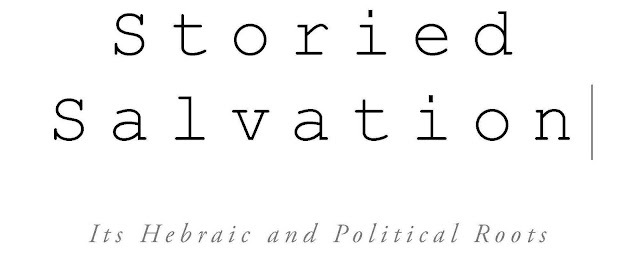Salvation According to Paul
Introduction.
Paul had a resurrection based soteriology. Paul and Luke are both most interested in salvation along with its progression. Paul used the verb sōzō (to save) twenty-nine times, topping anyone else in the NT. He makes up for half of the twenty-four times the noun sōtēr (savior) is used in the NT. Eighteen times he employed sōtēria (salvation) and singularly used sōtērion (salvation) and sōtērios (bringing salvation). He also used the verb rhuomai (deliver, rescue) eleven times.
When speaking of saving some of his fellow Israelites (e.g. Rom. 11:14), Paul did not intend that his own actions would effect salvation, but rather he provided them with the message given him by God, thereby causing them to turn and enter into the deliverance to be provided by God in Christ.
“Knowing the time, that it is already the hour for you to awaken from sleep; for now salvation is nearer to us than when we believed” (Rom 13:11).
When speaking of saving some of his fellow Israelites (e.g. Rom. 11:14), Paul did not intend that his own actions would effect salvation, but rather he provided them with the message given him by God, thereby causing them to turn and enter into the deliverance to be provided by God in Christ.
“Knowing the time, that it is already the hour for you to awaken from sleep; for now salvation is nearer to us than when we believed” (Rom 13:11).
“In popular evangelicalism salvation is constantly spoken of as something only in the past: ‘when I got saved . . .’ In the NT the balance of the salvation statements is in favor of a yet future final salvation. The NT says too that we ‘are being saved.’ (1 Cor. 1:18; 2 Cor. 2:15).” [1]
Paul used the word egeiro
(to wake), which can have no connection to asking Jesus to be a personal
savior. Otherwise Paul could have not said salvation was still before us, and nearer than before, when we first believed. If
the “day of salvation” (1 Cor 6:2; Isa 49:8) is the day I “made a decision” for
Jesus, then that day is behind me and getting further every day. Paul undoubtedly
had something else in mind.
Ergo, it should not come as a surprise that Paul was
thinking much larger. The word egeiro
is the same word used for the raising of the dead, no doubt making connection
with the LXX. Passages such as Daniel 12 could be recalled,
“those who sleep in the dust of the ground will awake, these to everlasting life, but the others to disgrace and everlasting contempt. . . . you will enter into rest and rise again for your allotted portion at the end of the age” v. 2, 13.
“The day of salvation” points toward a time of full restoration of cosmic proportions, the arrival of the long-awaited rule of God and the triumph over his enemies. This includes the enemy of death. This is vital within Paul’s soteriology, e.g. 1 Cor 15, possibly even relating to the exodus and the personal force, the destroyer. The entire order of the cosmos is about to be overturned and Yahweh – through his anointed, established and declared regent-king Jesus – will at last deliver his people from not only their present enemies, but the enemy that has plagued humanity all throughout history.
This is not a matter of a “personal rescue” operation
(although that is not excluded). It’s much larger. Jesus’ death, burial and resurrection
became the first-fruits of a larger harvest in the garden of God. In the OT God is sometimes a farmer/gardener and Israel is a tree, vine whose purpose is to yield fruit. In Jesus parables, the same metaphor is used. Even after Jesus’ resurrection, he is mistaken for a “gardener.” There can be little question that an allusion to God’s garden (Eden/restoration) and Jesus’ role as caretaker is being communicated.
The seeds have been
planted and life will come shooting out of the ground at God’s timing. The
re-establishment of God’s divine order will be underway, and creation will
revert to its original intent for which it was designed.
“This inaugurated
eschatology is the primary driver for Paul’s redefinition of what it means to
be God’s people (which is what he is still talking about, rather than any
abstract scheme of ‘how people get saved’ which ignores the Israel dimension).
If the end has come forward into the present—if the Messiah has arrived in the
middle of history—if resurrection itself has happened in one case while death
still appears to reign all around—then the verdict of the last day is already
known, and the careful eschatological schemes by which various quite different
groups of Jews had organized themselves, their lives and their soteriologies
must be seen in a different light.”[2]
For Paul, deliverance from sin is important because it affects one’s relationship to the “wrath or judgment of God,” although it is more common for him to simply speak of “salvation” rather than that from which one is saved. However, being “saved from sin” for Paul is tantamount to being released from the implications of God’s active justice which inevitably culminates in death. The Messiah Jesus, the man whom God has raised in declaration of divine appointment as judge, will enact God’s justice and reform. While being “saved from sin” manifests itself in corporeal and temporal benefits, Paul’s larger emphasis is eschatological when surveying the usage alongside his proclamation of the Gospel of the kingdom and parousia language.
[1] A. Buzzard, “Romans 13:11,” The One God the Father, One Man Messiah Translation (Restoration
Fellowship, 2015), 403.
[2]
Wright, Justification, 148.


No comments:
Post a Comment